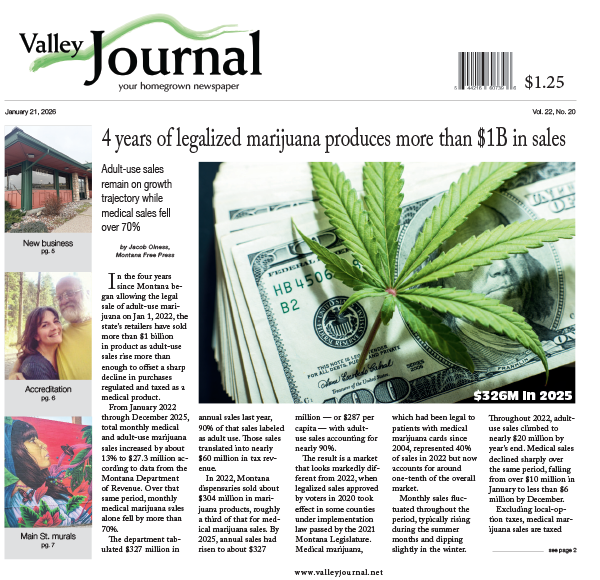Proposed dairy fee knocked down, Department of Livestock planning ensues
Hey savvy news reader! Thanks for choosing local.
You are now reading
1 of 3 free articles.
HELENA— A controversial fee increase proposed to Montana dairy producers, processors, and distributors has been batted down by pressure from the public, business owners and the Montana Economic Interim Committee. The Department of Livestock will head back to the drawing board to find a solution to the more than $130,000 budget deficit that it faces. Public input will be sought.
Fees as originally proposed last fall started at a minimum of $725 and went to a maximum of $2,850 per month per business, depending on the size of the operation. Fees for every 100 pounds of milk sold were also due to increase.
Dairy businesses from across the state were outspoken at two public meetings held by the DOL in December and January and said that the fees, which some had never paid in the past, were astronomical and would put them out of business.
With no solution in sight, the EIC became involved in February, objecting to the proposed fee increases and began delving into some of the budgetary issues faced by the DOL. Hard questions were asked about where the budget shortfalls came from. It was ultimately decided that the DOL, with the leadership of a very new executive director, along with businesses and public input, could come up with a fair fee structure without the EIC, which in turn lifted their objection.
At the Feb. 18 DOL board meeting, Chairman John Scully said that the department was currently undergoing an audit of the diagnostic lab, which some of the current fees cover to run. He said that until the report was finished and reviewed, it did not make sense to start forming new possible fee amounts for dairy businesses. Scully said they were working on breaking down where the fees were used.
“We can find no exact cost structure that was used to create the fees,” Scully said.
New DOL Executive Director Mike Honeycut has been looking deeper into the budget. At the time of the Feb. 18 board meeting, he had been on the job approximately 14 days. Most of his time to that point had been working to clarify the budget. Honeycut said he had been looking at the department’s revenue stream and the next step would be to look at their expenditures.
“Numbers do you no good unless you can do something with them,” Honeycut said.
Dairy processors in the Mission Valley could have been significantly impacted by the proposed fees, but the turn of events has allowed them a sigh of relief.
Wendi and Joe Arnold of Polson were outspoken about the negative impacts that the proposed fees would have on Flathead Lake Cheese. They went to many of the public meetings that were either in Helena or Bozeman to express how the fees would ultimately hurt or shutter their small business.
“We’ll see what the next round of fees will be. It’s still up in the air, but it seems like they want to work with us,” Wendi Arnold said.
Arnold said that the DOL now has representation from an active dairy business representative, Sue Brown of Amaltheia Organic Dairy.
Laura Ginsburg from the Golden Yoke Creamery, who has been working to open an ice cream shop in St. Ignatius, has also been following the development of the fees. Ginsburg is happy to hear that the burdensome fees have been scrapped.
“I think it is the right move for them considering they didn’t have an executive director or an active dairyman on the board,” Ginsburg said by phone.
Ginsburg thought that it seemed that the proposed fees were not based in reality, but rather a deficit that the DOL needed to cover.
“It was clear that they were just trying to make up a budget deficit, which would ultimately affect people’s livelihoods. We need to pay something and it needs to cover the costs of the department. We also need to look across the processing industry and make it fair for all processors across the state, not just dairy,” Ginsburg said.
















